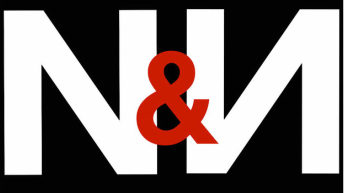by Sophie Gordon
“Tell us about yourself and list five qualities that would make you a good police officer.”
I paused at the question, wondering how I could list what made me a good police officer when I didn’t even want to be one.
“Well...” I started. “I’m Sophie. I’m a freshman journalism major at Ball State, and I am hard-working and curious. I like to look at all angles of a situation...”
This was the first of a number of questions I was asked as I interviewed for a position as a police officer at the Ball State University Police Department. While I have no interest in becoming a police officer, this mock interview gave me insight to what a police officer must go through in order to earn the uniform. This lesson is one of many that my professor, Dr. Adam J. Kuban, hopes we students get out of his immersive learning class, Police + the Press.
Since I was in seventh grade, I’ve known that I want to be an investigative reporter. After watching Anderson Cooper report on illegal animal trading in the documentary Planet in Peril, I was hooked. Now, as an undergraduate, I still hold that dream. I’ve chosen to minor in criminal justice and sociology to give me more experience in areas other than journalism that may help me with investigating. When I saw the flyer for Police + the Press, I knew the class was meant for me. It tied my minor and major together perfectly and was geared toward exactly what I want to do.
The course hasn’t been an easy one. Just three weeks into the semester, the expectations have been high. From learning how to properly conduct a patdown on day one to discussing good interview habits on day three, I’ve continued to learn new things every class. This immersive learning class stands out to me because of the hands-on approach. I’ve immersed myself into the world of police work, giving me a much better perspective when it comes to crime reporting. At a time when tensions between the police and the press are high, it is critical that reporters understand what they are writing about.
Police + the Press is an important class because it bridges the gap between both organizations. Since many crime reporters are new to the beat and are not given instruction beforehand, much of what is said in stories may not reflect how police officers perceive the incident. As journalists, it is important to be objective and get all sides of the story, something that is even more important when dealing with crimes that have escalated to violence.
The final product from this class is an app that showcases multimedia projects created during the course. These projects are meant to show the general public what it is that police officers do, while also building relations between the police, the press, and the people.
I paused at the question, wondering how I could list what made me a good police officer when I didn’t even want to be one.
“Well...” I started. “I’m Sophie. I’m a freshman journalism major at Ball State, and I am hard-working and curious. I like to look at all angles of a situation...”
This was the first of a number of questions I was asked as I interviewed for a position as a police officer at the Ball State University Police Department. While I have no interest in becoming a police officer, this mock interview gave me insight to what a police officer must go through in order to earn the uniform. This lesson is one of many that my professor, Dr. Adam J. Kuban, hopes we students get out of his immersive learning class, Police + the Press.
Since I was in seventh grade, I’ve known that I want to be an investigative reporter. After watching Anderson Cooper report on illegal animal trading in the documentary Planet in Peril, I was hooked. Now, as an undergraduate, I still hold that dream. I’ve chosen to minor in criminal justice and sociology to give me more experience in areas other than journalism that may help me with investigating. When I saw the flyer for Police + the Press, I knew the class was meant for me. It tied my minor and major together perfectly and was geared toward exactly what I want to do.
The course hasn’t been an easy one. Just three weeks into the semester, the expectations have been high. From learning how to properly conduct a patdown on day one to discussing good interview habits on day three, I’ve continued to learn new things every class. This immersive learning class stands out to me because of the hands-on approach. I’ve immersed myself into the world of police work, giving me a much better perspective when it comes to crime reporting. At a time when tensions between the police and the press are high, it is critical that reporters understand what they are writing about.
Police + the Press is an important class because it bridges the gap between both organizations. Since many crime reporters are new to the beat and are not given instruction beforehand, much of what is said in stories may not reflect how police officers perceive the incident. As journalists, it is important to be objective and get all sides of the story, something that is even more important when dealing with crimes that have escalated to violence.
The final product from this class is an app that showcases multimedia projects created during the course. These projects are meant to show the general public what it is that police officers do, while also building relations between the police, the press, and the people.

 RSS Feed
RSS Feed
